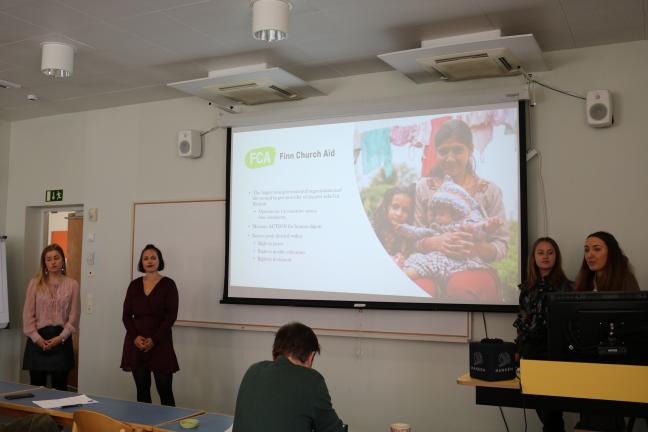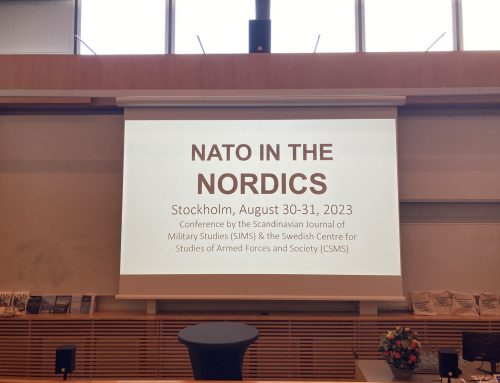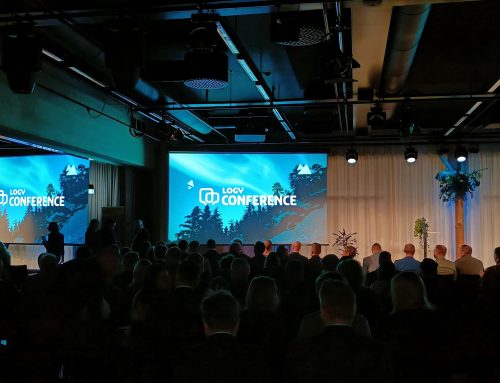During our first academic year, we (as Hanken’s Humanitarian Logistics students) had a project course included in our curricula. Our mission was to conduct a project for Finn Church Aid, which is focused on education in emergencies. The aim was to identify bottlenecks from the past to prevent repeating them in the future. We all agreed upon the fact that “the team makes the experience” and were very lucky with the cohesion both between us and with the organization. Within our core team we had trust, motivation and commitment with a bit of humour when it was needed. The project was effortless yet provided valuable insights about humanitarian activities at the field (and yield excellent grades from the course).
With this kind of large project, we felt we were able to learn many different things that influence all aspects of our daily life, such as new findings related to personal competences, team working and so on. Overall, we agree with the team that the most important learnings of the project are the practical things from the humanitarian field, which we had not explored to this extent until we started working with FCA.

Already, during the very first project meeting with our FCA mentor back in January, we received a great deal of new information. New things popped out during each step of our project, as we got new sets of data from FCA until the last weeks of the project. The documents we received were sent in different languages, which enabled everybody to take part into the project and cooperate to get a full understanding of the direction we were taking.
Besides the literature review and data analysis, we conducted three in-depth interviews with organization’s representatives. They were very valuable for our project but also for our personal growth. Listening experiences from the field was inspiring and strengthened our will to work as a roster for some humanitarian aid organization in the future. We are aware that it is difficult to get the first change and experience as a newly graduated in the humanitarian aid industry. Therefore, we see this project and experience even more beneficial for us.
We all agree that the project with FCA was very interesting, practical and educational. FCA shared such a large number of documents for us and gave a lot of their time for the interviews. This enabled us to learn and proceed from the basics to more complex issues and understand the insights. Throughout the project, we had a feeling that the organization believed and trusted on us. FCA gave us the responsibility to form the final version of the project aim and therefore the implementation guide was truly a result of our own knowledge. We concluded data from various sources and turned it into practical tool. It helps professionals to establish operations post-crisis to overcome common setbacks. We believe that the learnings from this project are necessary for any humanitarian logistics graduate, so we are grateful for Hanken, but especially for FCA, for this opportunity.
The course was organised in spring 2019 for the seventh time, with a record number of 14 organisations taking part. Among the organizations were Danske Bank, Demos Helsinki, Fazer, Outotec, UNICEF and the Finnish-Russian Chamber of Commerce. To know more, read the article “Record number of organisations in CSR and Humanitarian Logistics course“.
More about the course can be found here.




